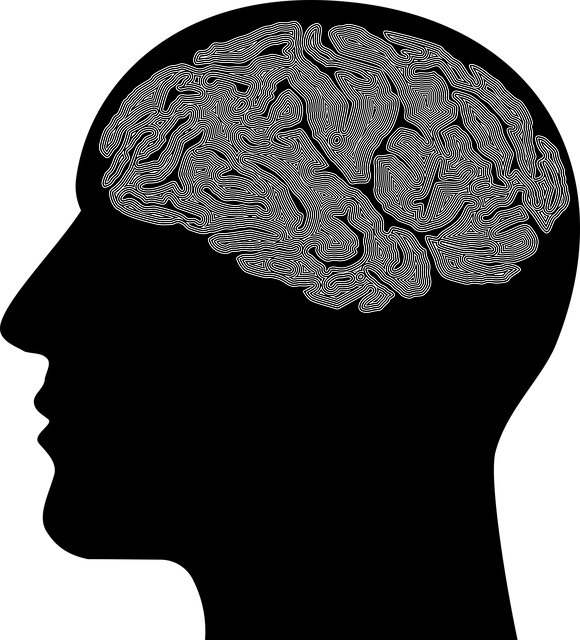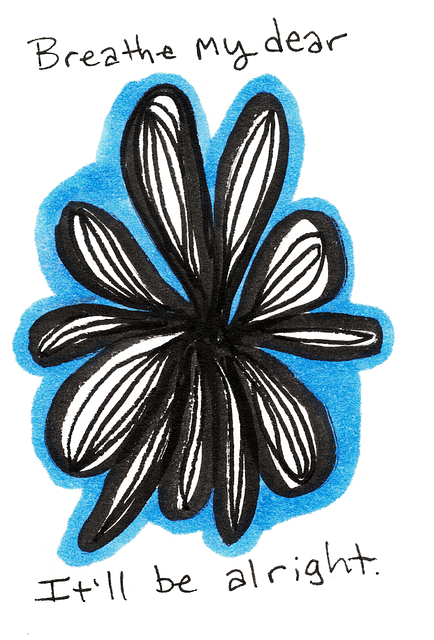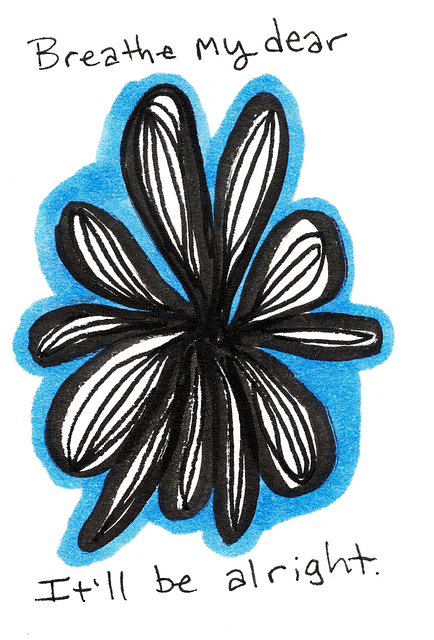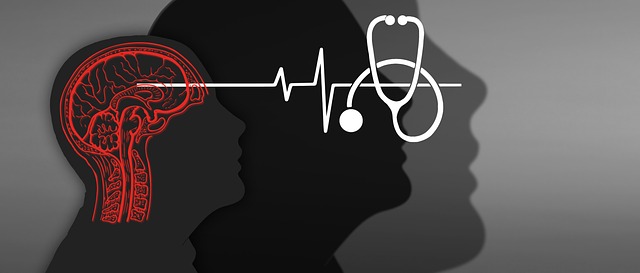Mindfulness meditation, a core element of Lone Tree Dialectical Behavioral Therapy (DBT), enhances emotional regulation and present-moment awareness through non-judgmental observation of breath, body, and thoughts. Setting up a calming space, engaging in self-care rituals, and setting intentions aligned with DBT's focus improves mental well-being, reduces stress, and boosts self-esteem. Techniques like body scans and breathing exercises cultivate awareness, fostering better emotional intelligence and self-connection. Regular practice in Lone Tree mindfulness therapy facilitates stress management, anxiety relief, and emotionally healing responses, transforming clients' mental health journeys.
“Unwind and embrace tranquility with Mindfulness Meditation, a core practice within Lone Tree Dialectical Behavioral Therapy (DBT). This comprehensive guide navigates your journey towards inner peace. From understanding the fundamentals of mindfulness to setting a serene practice space, we explore effective techniques and exercises. Learn how to seamlessly integrate mindfulness into daily life, enhancing overall well-being. Discover the support a therapist can offer, guiding you through challenges and fostering personal growth in this transformative process.”
- Understanding Mindfulness Meditation: A Foundation for DBT
- Setting the Stage: Preparing for Your Practice
- Techniques and Exercises for Effective Mindfulness
- Incorporating Mindfulness into Daily Life
- The Role of a Therapist in Guiding Your Journey
Understanding Mindfulness Meditation: A Foundation for DBT

Mindfulness meditation is a fundamental practice within Dialectical Behavioral Therapy (DBT), offering individuals a powerful tool for managing emotions and cultivating present-moment awareness. It involves focusing on the breath, bodily sensations, and thoughts without judgment, allowing one to observe their mental state objectively. This ancient technique has gained prominence in modern times, especially in the realm of Lone Tree Dialectical Behavioral Therapy, as it provides a structured approach to enhancing mental well-being.
Understanding mindfulness meditation is crucial for anyone seeking effective coping strategies. By integrating this practice into daily routines, individuals can improve their ability to regulate emotions, reduce stress, and enhance overall mental health. This is particularly beneficial in navigating the complexities of life, even addressing issues like anxiety relief, as it empowers folks to respond mindfully rather than reacting impulsively. Moreover, cultural sensitivity in mental healthcare practice can be enhanced through mindfulness, fostering a more inclusive environment for all.
Setting the Stage: Preparing for Your Practice

Setting the stage for your mindfulness meditation practice is akin to preparing a quiet sanctuary where your mind can find peace and focus. Start by creating a dedicated space, free from distractions. A lone tree in your backyard or a tranquil corner of your home can serve as your personal meditative haven. This space should evoke a sense of calm; consider adding soft lighting, soothing scents, or comfortable seating to enhance the ambiance.
Engaging in self-care rituals before meditation can significantly improve your experience. Take a few moments for deep breathing exercises or light stretching to release tension from your body. Moreover, setting an intention for your practice—whether it’s cultivating mindfulness, reducing stress, or enhancing emotional regulation—can provide direction and purpose. Drawing inspiration from Dialectical Behavioral Therapy’s (DBT) emphasis on self-awareness and emotion regulation, you can integrate these skills into your meditation, fostering a deeper connection with your thoughts and feelings.
Techniques and Exercises for Effective Mindfulness

Mindfulness meditation involves techniques that help individuals focus on the present moment, cultivating a sense of calm and clarity. One effective exercise is body scan meditation, where one slowly directs attention to different parts of the body, noting sensations without judgment. This practice enhances self-awareness and can significantly boost emotional intelligence and self-esteem improvement. Lone Tree Dialectical Behavioral Therapy (DBT) incorporates mindfulness as a core component, offering structured techniques to manage emotions and reduce stress.
Another valuable method is mindful breathing exercises, such as focusing on the inhalation and exhalation of breath. This simple yet profound practice can quickly ground individuals in the present, calming the mind and reducing anxiety. By integrating mindfulness into daily routines, whether it’s during meals or while walking, individuals can develop a stronger connection with their senses and emotions, fostering better mental health outcomes. These techniques are especially relevant for mental health professionals who must maintain high levels of emotional intelligence and conduct thorough risk assessments to ensure effective care delivery.
Incorporating Mindfulness into Daily Life

Integrating mindfulness into your daily routine can be as simple as taking a few moments to breathe mindfully during your day. Start by setting aside just 5-10 minutes each morning or evening to practice. You can do this while sitting comfortably in silence, focusing on your breath and observing your thoughts without judgment. This practice, often referred to as Lone Tree mindfulness, allows you to cultivate present-moment awareness and develop a deeper connection with yourself.
By incorporating these moments of stillness throughout the day, you can begin to observe patterns of thinking and emotional responses more clearly. This heightened awareness is crucial for managing stress, anxiety relief, and facilitating self-care practices—all of which are key components of Dialectical Behavioral Therapy (DBT). Through consistent mindfulness practice, you’ll start to notice how your thoughts and emotions influence your actions, enabling you to respond rather than react in challenging situations, and fostering emotional healing processes.
The Role of a Therapist in Guiding Your Journey

Embarking on a mindfulness meditation journey can be transformative, and a therapist plays a pivotal role in guiding individuals through this process. At Lone Tree Dialectical Behavioral Therapy, therapists are trained to offer personalized support, ensuring clients receive the utmost care during their practice. They provide a safe space for exploration, helping individuals navigate their thoughts and emotions effectively.
Through tailored therapy sessions, these professionals offer valuable mental wellness journaling exercise guidance and stress management workshops organization. By integrating mindfulness into daily routines, they empower clients to prevent depression and enhance overall well-being. The therapist’s expertise lies in teaching practical techniques, such as breathing exercises and body scans, which allow individuals to cultivate a deeper sense of awareness and calm. This journey is collaborative, with therapists offering depression prevention strategies and support tailored to each client’s unique needs.
Mindfulness meditation, as a cornerstone of Dialectical Behavioral Therapy (DBT), offers powerful tools for personal growth and emotional well-being. By understanding its fundamentals, preparing with intention, and incorporating practical techniques into daily life, individuals can embark on a transformative journey guided by Lone Tree DBT therapy. This article has provided a roadmap to navigate the path of mindfulness, fostering a deeper connection with oneself and leading to lasting positive change.













